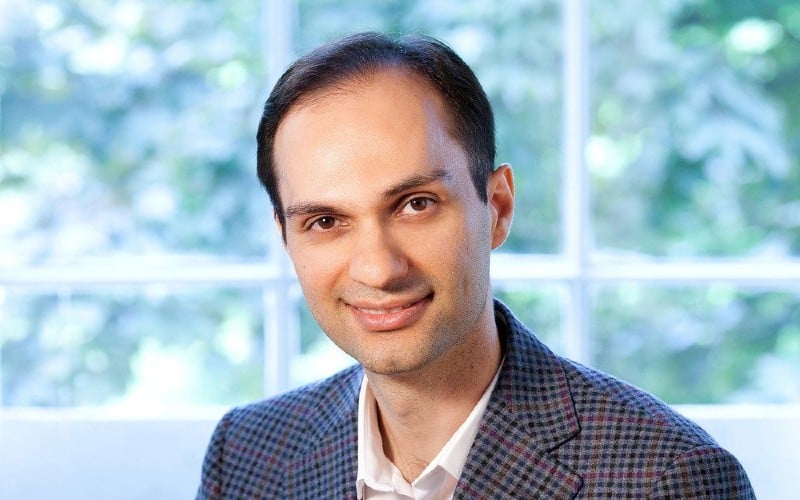Entrepreneurs behind businesses of all kinds agree that a good idea will never go anywhere unless it is backed up with solid foundations.
The difference between a wildly successful or solid-performing startup or scaleup and one which is struggling or failed can be marginal.
From a key hire who changes direction in response to market forces, an investor who helps the founder navigate choppy waters to a chance connection in new markets – the game-changer could be in a variety of areas.
That is why business accelerators or incubators are so coveted. They provide resources which give fledgling entrepreneurs an opportunity to shore up and bolster their startup without handing over large chunks of equity.
“In the startup world, a good idea alone isn’t always enough,” says Keyvan Vakili, associate professor of strategy and entrepreneurship at London Business School.
In the UK alone, almost 20,000 tech startups were launched in 2020. It’s becoming harder than ever for new companies to stand out against the competition and make an impact.
LBS is launching The Entrepreneurship Lab, which will give cohort businesses access to mentorship from leading figures in the London and European tech scene; prominent investors and ecosystem experts; and, crucially, a managerial team made up of LBS graduate students.
The network includes Seedcamp managing partner Carlos Eduardo Espinal, Notion partner Itxaso Del Palacio, LocalGlobe co-founder Saul Klein and Oxford Computer Science professor Blanca Rodriguez.
“With TEL, we want to ensure every entrepreneur that comes through our doors leaves stronger and can go on to make a global impact,” says Vakili. “We want to ensure these startups have everything they need to support them on their journey.”
The first 14-strong cohort of entrepreneurs are building essential products and services, from a smart cane for visually impaired people, a social network for tradespeople, a guided emotional wellbeing programme, personalised rehabilitation solutions for people with long-term health conditions and a legal services marketplace for small businesses.
At the end of the four-month program, the companies will pitch to investors from some of the top European VC funds.
Emma Phillips, investment partner at LocalGlobe, says the VC “will use our combined extensive experience in backing the leading tech companies… to help guide the next generation of startups so they are able to compete on the global stage, standing shoulder-to-shoulder with tech giants.”
One of the cohort companies is LegalDrop, founded by Dror Levy. The digital legal platform enables SMEs to understand what legal services they need, what their legal costs will be, and how to communicate their needs accurately with a legal service provider.
“This is an amazing opportunity to learn from some of the most brilliant minds in the industry and will provide essential resources to help the team and I grow LegalDrop which we simply would not have had access to on our own,” says Levy.
“I’m also looking forward to spending time with other entrepreneurs – founding a company isn’t an easy thing to do and it’ll be great to learn from one another during the programme.”
The other cohort companies are:
Umwuga – a social network for tradespeople, service industry workers, and the people who hire them. Umwuga helps workers build a reputation for their work and use it to connect them with people, jobs, and opportunities that will improve their career.
Paradym – a guided emotional wellbeing programme empowering users to uncover their emotional identity, break patterns and more – backed by the science of emotions.
WeWalk – this startup has developed a novel smart cane and companion smartphone app to improve the mobility of visually impaired people, allowing them full and equal participation in everyday life.
Flock Mobility – redefining the way corporate employees, residents and healthcare workers move by offering them a shared electric car fleet when they need it. Flock democratises access to electric vehicles through shared consumption that makes them more convenient and affordable to use.
Recruitment Smart Technologies – automates the end-to-end talent supply chain process for organisations to effectively find, qualify and hire the best talent before their competitors. It also provides an AI solution that helps companies look for employees who can add value immediately.
Synativ Technologies – creates the synthetic data required to produce computer vision AI efficiently, accurately and without bias.
Sociability – a free mobile and web app that provides disabled people, and their family, friends and carers, with detailed and accurate accessibility information for venues, primarily social venues such as bars, restaurants, pubs and clubs.
Powered by People – an online B2B marketplace connecting global buyers (such as Ikea, William Sonoma, Cost Plus World Market, Homegoods, plus thousands of independent retailers) to creative manufacturing and handmade (CMH) producers in Africa, Latin America and Asia.
EyeQuant – combines neuroscience and deep learning AI to create ‘data-before-you-launch’ for creators so that they can pre-optimise and pre-test their creative work as early as a wire-frame, leading to better performance when live, reduced wastage and smoother stakeholder management.
Avegen – a HealthTech company based in London and Pune which builds digital care programmes that are personalised, patient-centric and evidence-based.
Greenspark – an impact-as-a-service platform allowing companies to create positive impact by integrating their systems in order to reward certain actions such as planting a tree per order, rescuing plastic for every newsletter signup or offsetting CO2 for each review left by customers.
Handheld Health – provides individuals suffering from long term health conditions personalised rehabilitation solutions that benefits lives and relieves pressure on health services.
Grapevine – an AI-powered digital concierge enabling corporate Travel Management Companies to provide personalised ‘right time, right channel’ offers to business travellers.


